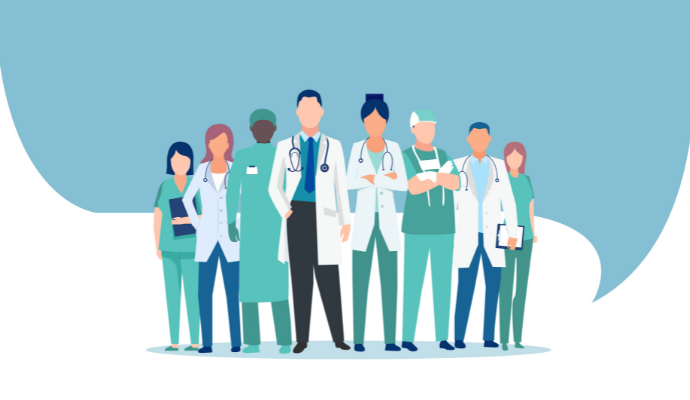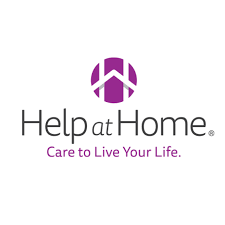
It's not just about dispensing medications or filling prescriptions; working at a pharmacist also involves helping patients with medical issues. As a technician at a pharmacy, you can assist people in achieving a healthy lifestyle by providing the proper medications and instructions.
Assisting licensed pharmacists in various tasks and activities is a high-speed environment. You should be prepared to work hard, meet deadlines and show genuine concern for your clients.
Although your job as a technician is fairly simple, there are many opportunities to learn. Self-starters can develop their initiative and independence. As you develop your patience and understanding of patients, this career will be a good fit for you.

You'll need to learn how to prepare prescriptions and sterile techniques. Dosage documents, too, are important skills. By measuring, mixing and counting medications, such as tablets, liquids and capsules you will be able prepare them. This is a difficult task that requires a solid understanding of both chemistry and mathematics.
Pharmacy technicians are often called upon to perform tasks that do not fall within the pharmacy's scope of practice, such as filling out insurance forms and compiling patient medication profiles. You can also help with drug trials or vaccinations.
The work is a great way to make friends with pharmacists and other employees in the pharmacy, as well as learn about a wide range of medical conditions and drugs. As a pharmacy tech, you can make a great living. The job outlook is expected to be positive until 2030.
Pharmacy technicians typically pursue associate's or certification programs. Certificate programs last about a year and are focused on specific skills. An associate's program can be completed within two years, and it gives you an academic degree.

There are a number of ways to become an accredited pharmacy technician. These programs teach you how to do everything in the pharmacy field. From handling transactions at the store to writing precise prescriptions, they cover it all. These programs are available online and at community colleges or universities.
Obtaining a job as a pharmacy technician can be a challenge, but it's a rewarding and fulfilling career path that will help you make a difference in the lives of people. You'll learn valuable skills and gain experience that you can use in many different careers.
You must have a GED/high school diploma. Some states require pharmacy techs to pass a test and receive licensure. These can be obtained at the level of each state. In some states you will also need to have on-the job experience.
FAQ
What are my options for immunizations in the United States?
Immunization is the process of stimulating an immune response to a vaccine. The body creates antibodies (immunoglobulins), in response to the vaccine. These antibodies protect against infection.
What are the services of health care?
Patients need to be aware that they can get quality healthcare any time. We're available to assist you with routine or urgent care.
We offer many types and types of appointments. If you live far away from our clinic, we can also provide home health care visits. We will ensure that you get prompt treatment at the nearest hospital if you aren't comfortable visiting our clinic.
Our team includes doctors, nurses, pharmacists, dentists, as well as other professionals who are dedicated to providing exceptional patient service. Our goal is to make each visit as painless and convenient as possible.
Who owns the healthcare network?
It all depends on your perspective. The public hospitals could be run by the government. Private companies may run private hospitals. Or a combination of both.
What are the major functions of a system for health care?
The health care system should provide adequate medical facilities for people who need them at a reasonable cost while ensuring access to quality services by all.
This includes providing preventive care, encouraging healthy lifestyles and the appropriate treatment. It also requires equitable distributions of healthcare resources.
What does the term "healthcare" mean?
It is the provision of services for maintaining good physical and psychological health.
What is the difference in public and private health?
In this context, the terms refer both to the decisions made and those of legislators by policymakers. These policies affect how we deliver healthcare services. One example is the decision to build an additional hospital. This decision could be made locally or regionally. The same goes for the decision whether to require employers provide health insurance. This can be done by local, national or regional officials.
Statistics
- The health share of the Gross domestic product (GDP) is expected to continue its upward trend, reaching 19.9 percent of GDP by 2025. (en.wikipedia.org)
- The healthcare sector is one of the largest and most complex in the U.S. economy, accounting for 18% of gross domestic product (GDP) in 2020.1 (investopedia.com)
- For instance, Chinese hospital charges tend toward 50% for drugs, another major percentage for equipment, and a small percentage for healthcare professional fees. (en.wikipedia.org)
- Consuming over 10 percent of [3] (en.wikipedia.org)
- Over the first twenty-five years of this transformation, government contributions to healthcare expenditures have dropped from 36% to 15%, with the burden of managing this decrease falling largely on patients. (en.wikipedia.org)
External Links
How To
What is the Healthcare Industry Value Chain (or Value Chain)?
The entire value chain of the healthcare industry includes all activities involved with providing healthcare services to patients. This includes all business processes at hospitals and clinics. It also includes supply chains that connect patients to other providers like pharmacists and insurance companies. The final result is a continuum in care that begins with diagnosis, and ends with discharge.
There are four components to the value chain:
-
Business Processes: These are all the tasks performed by people throughout the entire delivery of healthcare. A doctor might conduct an exam, prescribe medication and send a prescription to a pharmacy. Each step must be done correctly and efficiently.
-
Supply Chains – All organizations that ensure the right supplies reach the correct people at the right times. One hospital may have many suppliers. This includes pharmacies and lab testing facilities as well as imaging centers and janitorial staff.
-
Networked Organizations (NO) - In order to coordinate the various entities, communication must exist between all parts of the system. Hospitals typically have many departments, each with its own set of offices and phone numbers. Employees will be able to access a central point for information and updates in every department.
-
Information Technology Systems – IT is crucial in order to ensure that business processes run smoothly. Without it, everything could go down quickly. IT provides an opportunity to integrate new technologies into the system. A secure network connection can be used by doctors to connect electronic medical records to their workflow.